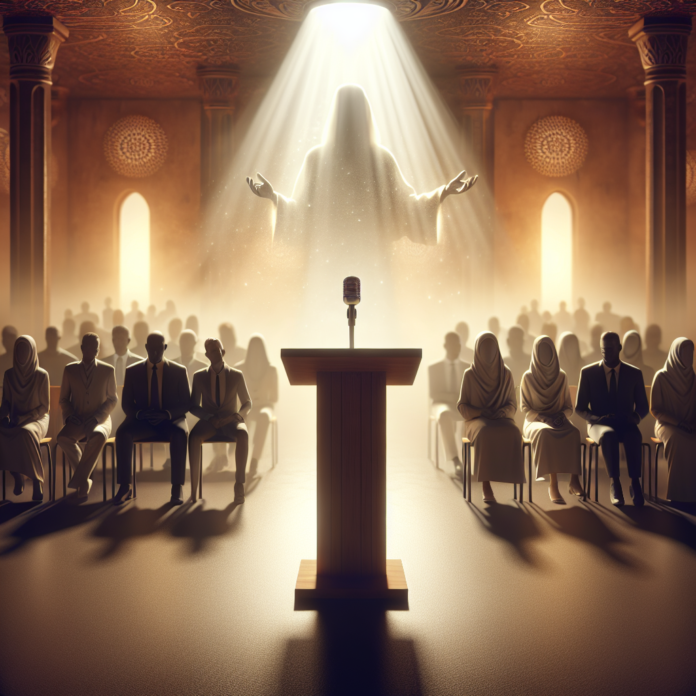In today’s rapidly evolving world, the relationship between faith and politics remains a heated topic, particularly within Christianity. At the heart of this debate lies a profound divergence: the clash between traditionalism and progressive values. This tension is not a modern phenomenon, as history illustrates a perpetual struggle within religious institutions to balance tradition with evolving societal norms. Today, the dynamics within the Catholic Church offer a poignant example of this ongoing struggle.
The Catholic Church, an institution intricately woven into the fabric of history, has always played an influential role in shaping political landscapes. Equally, it has often found itself shaped by them. For centuries, the Church maintained a steadfast resistance to change, embracing a traditionalist approach. This purist perspective often conferred enormous power on a privileged few within the ecclesiastical hierarchy. Ritualistic practices, epitomized by the Latin Mass, come to mind as emblematic of this strain of rigid orthodoxy.
However, the turn of the millennium witnessed a burgeoning call for progressive values within the Church. This movement aims to reconcile timeless spiritual tenets with the ever-evolving ethical demands of modern society. Pope Francis, a beacon of progressive thought, has spearheaded numerous initiatives that challenge the reactionary faction within the Vatican and beyond.
Tradition vs. Progress: The Historical Context
To understand this schism, one must first appreciate the historical backdrop. Conservative elements within the Church often glorify an era of perceived moral high ground, one where societal norms were supposedly aligned with divine commandments. Yet, it’s essential to acknowledge that these "golden eras" were also marked by social injustices, including the subjugation of various groups and a lack of intellectual freedoms.
As Charles Darwin published his groundbreaking works on evolution in the 19th century, traditional Catholics fervently opposed this notion, viewing it as a direct threat to Biblical literalism. Likewise, during the feminist movements of the 20th century, the Church initially resisted calls for gender equality, eschewing female empowerment in favor of male-dominated ecclesiastical authority. In both cases, it was progressive secular thought that later received validation, compelling the Church to modify its stance incrementally.
The Papacy of Progress: Pope Francis
Born Jorge Mario Bergoglio in Argentina, Pope Francis embodies a paradigmatic shift for contemporary Catholicism. Since his ascent to the Papacy in 2013, he has exercised a more pastoral and less dogmatic approach. His tenure symbolizes an embrace of inclusivity, humility, and a redirection of focus toward the marginalized sectors of society. This philosophy starkly contrasts with the past’s rigid doctrines and selective moral purview.
One of Pope Francis’s notable acts was his humble request for prayers immediately upon becoming pope, showcasing his less hierarchical, more community-focused vision. His encyclicals, particularly "Laudato Si’" and "Fratelli Tutti," expound on themes of environmental stewardship and fraternal humanism, which strongly align with progressive ideologies advocating social justice and collective responsibility.
Latin Mass and the Roots of Division
Conversely, the controversy surrounding the Latin Mass encapsulates the dilemma between tradition and modernity. The Mass, conducted in Latin, has frequently been romanticized by traditionalists as a pure, unaltered form of worship. To them, discontinuing it signals the erosion of sacred customs and an unwelcome shift toward secularism.
However, conducting Mass exclusively in Latin invariably alienates many faithful, creating barriers to understanding and participation. In a pluralistic world where inclusivity should be a core value, clinging to archaic rituals seems not only anachronistic but fundamentally antithetical to the gospel’s inclusive message. Pope Francis, recognizing this dissonance, has restricted the Latin Mass, asserting that worship should be accessible and comprehensible to all believers.
Getting Political: The Catholic Election
The interplay between faith and politics becomes particularly pronounced during elections. Historically, Catholic votes significantly impact political outcomes. In many instances, conservative factions have mobilized around wedge issues such as abortion and same-sex marriage. However, these narrow focuses divert attention from broader social concerns like poverty, healthcare, and climate change—issues that Pope Francis continually emphasizes.
Progressive Catholics advocate a more holistic approach to voting, one that harmonizes spiritual beliefs with comprehensive social justice. In contrast, the traditionalist conveyance often seems confined to specific dogmas, appearing disjointed from modern societal challenges.
The Path Forward
Catholicism’s future hinges on its ability to adapt without sacrificing its core spiritual tenets. Progressive values, grounded in empathy, inclusivity, and social justice, resonate with the gospel’s teachings more authentically than the selective morality of strict traditionalism. Pope Francis’s leadership exemplifies this nuanced understanding—a bridge between faith and a rapidly diversifying world.
Adhering strictly to tradition risks alienating an evolving congregation. By contrast, embracing progressive values can invigorate faith, rendering it a living, dynamic force capable of addressing contemporary issues effectively. The stakes are high. The Church must reconcile its rich heritage with a forward-thinking vision to remain relevant and meaningful in today’s society.
Ultimately, the intersection of faith and politics calls for thoughtful reflection. It beckons the faithful to choose a path where spirituality fosters unity and understanding rather than division. Guided by leaders like Pope Francis, the Catholic Church has an unprecedented opportunity to be a proactive force for good in a world that needs compassion now more than ever.
